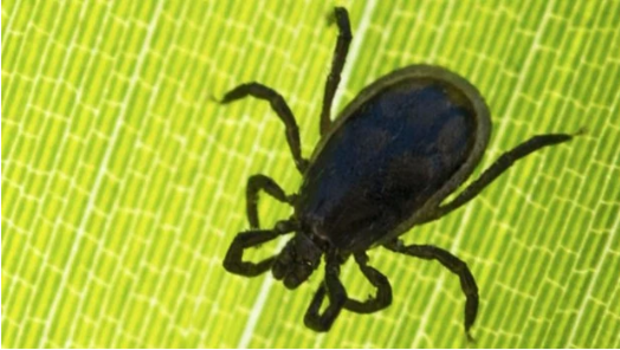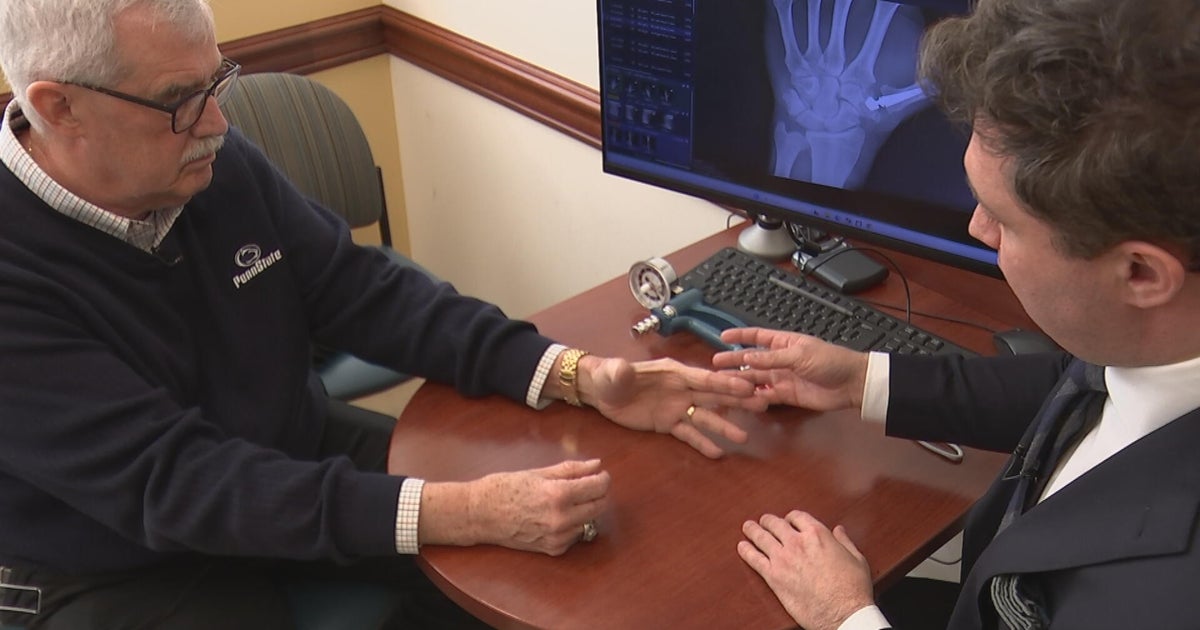Man "lucky" to be alive after getting Powassan virus from tick bite
Tucker Lane of Barnstable, Massachusetts, has been around ticks his entire life, but a bite from one during the summer of 2014 almost killed him.
"Woke up sweating, cold, shaking felt like I was going to puke," Lane told CBS Boston.
A few days later he fell into a coma for a week.
"They kind of told my parents there's nothing more we can really do," said Lane.
Doctors eventually diagnosed him with the tick-borne disease Powassan virus, which has no treatment. The virus can attack the brain and cause inflammation leading to neurological problems and even death.
It's not a common illness, but that doesn't mean people should dismiss it.
"It's out there at an extremely low level. So this is a rare disease, but there is some risk exposures," said Barnstable County Entomologist and Deer Tick Project Coordinator Larry Dapsis.
Powassan virus has been detected in ticks along a 40 mile stretch of Massachusetts' Cape Cod peninsula, said Dapsis.
Eight cases of Powassan were reported in the entire state of Massachusetts from 2006 to 2015, according to the U.S. Centers for Disease Control and Prevention. State health officials say there have been 13 cases and three deaths since 2013, CBS Boston reports.
Massachusetts isn't the only state affected. Other states reporting Powassan virus include Maine (2 cases), Minnesota (20), New Hampshire (1), New Jersey (3), New York (16), Pennsylvania (1), Virginia (1) and Wisconsin (16), according to the CDC.
"It just means you pay attention to doing certain things about preventing tick bites," said Dapsis, who has spoken with relatives of two men he said died of Powassan virus.
The CDC is warning that tick-borne diseases are on the rise in some places this year. Ticks that spread Lyme disease are becoming a bigger problem in many areas of the country, and just last week, Rocky Mountain spotted fever made headlines over the death of an Indiana toddler.
When out in areas where there are ticks — including woods, parks, and even backyards — adults and children should follow these recommendations:
- Avoid wooded and brushy areas with high grass and leaf litter, and walk in the center of wooded trails.
- Wear clothing treated with the insecticide permethrin.
- Use an insect repellent containing at least 20 percent DEET.
- If you find a tick on the skin, remove it right away. Use tweezers and pinch the tick near its mouth parts, pulling it out slowly in a continuous motion. Don't twist it, which might leave tick parts behind in the skin.
- Tick-borne diseases, including Lyme disease, Rocky Mountain spotted fever, and tularemia, can lead to distinctive rashes, which the CDC details here.
- Check yourself, your kids and pets for ticks after spending time outdoors, including any outdoor gear.
- If your child develops a fever after a tick is removed, see your doctor as soon as possible.
- Keep lawn grass cut short, and apply pesticides if possible.
- Remove any old furniture or trash from your yard.
With some tick-borne infections, generally the longer a tick is attached, the worse the infection. But there is some evidence suggesting Powassan virus can spread more quickly.
Powassan symptoms can crop up anywhere from a week to a month after a person has been bitten, and include fever, headache, vomiting, weakness, confusion, loss of coordination, speech difficulties and seizures. Powassan virus infection can cause meningitis (inflammation of the covering of the brain and spinal cord) or encephalitis (inflammation and swelling of the brain). Some people will never have any symptoms, while others may get very sick. About 10 percent of people who experience a severe form of the disease will die. Survivors may have long-term health problems.
Unlike Rocky Mountain spotted fever and Lyme disease, which can be treated with antibiotics, there is no drug treatment for Powassan virus.
Now, three years later after his health scare, Lane is doing fine and reports no lingering symptoms or damage to his brain from the virus.
"I knew I got lucky in a very unlucky situation," he said.




